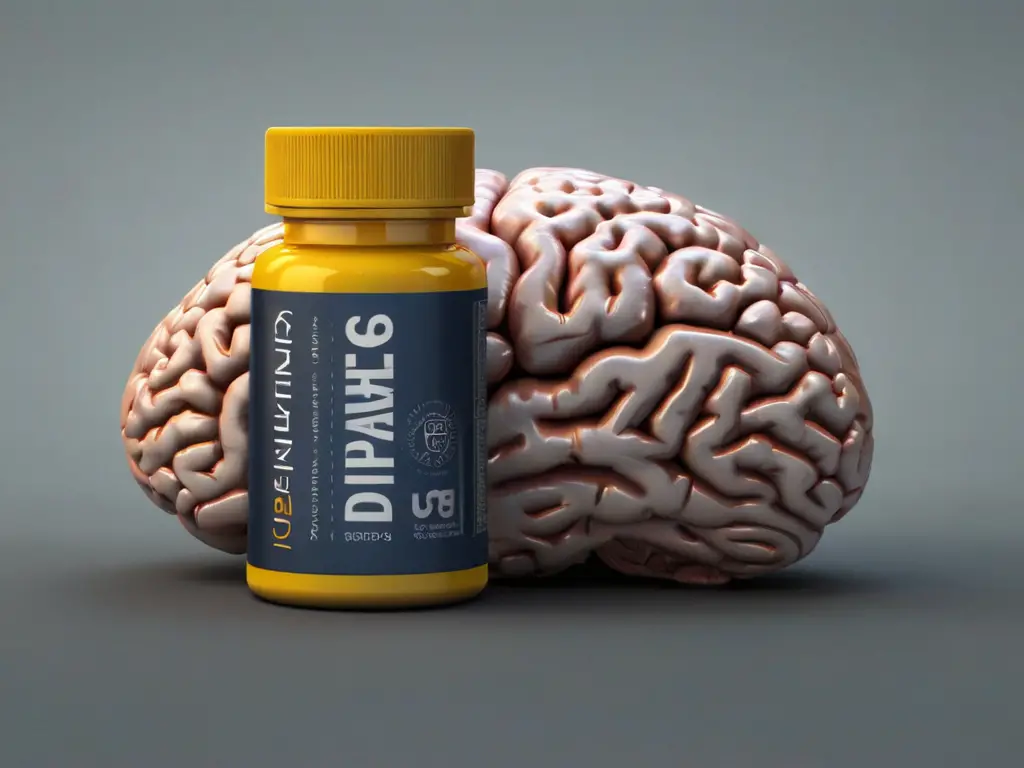
Brain supplements, also known as nootropics, have gained popularity as a way to enhance cognitive function, improve memory, and increase focus.
These products often contain a mix of vitamins, minerals, herbs, and other compounds designed to support brain health.
But while the idea of taking a pill for a sharper mind is appealing, it’s important to understand how these supplements work and whether they are effective.
Factors Affecting Brain Health
Before considering brain supplements, it’s important to understand the key factors that naturally affect brain health.
Several lifestyle and biological factors can influence how well your brain functions:
Diet
What you eat plays a big role in brain health.
A balanced diet rich in antioxidants, omega-3 fatty acids, and essential vitamins can support cognitive function.
Foods like berries, fatty fish, nuts, and leafy greens are particularly beneficial for your brain, helping improve memory and overall brain performance.
Physical activity
Regular exercise is great for your brain, not just your body.
It increases blood flow to the brain, which promotes the growth of neurons (brain cells) and helps protect against cognitive decline as you age.
Sleep
Getting enough quality sleep is essential for your brain to function properly.
During sleep, your brain consolidates memories and clears out waste products.
Chronic sleep deprivation can lead to problems with memory, concentration, and decision-making.
Stress
Long-term (chronic) stress can have a negative impact on the brain.
When you’re stressed, your body releases cortisol, a hormone that can damage brain cells over time.
This can lead to issues with memory and overall cognitive decline.
Age
As we grow older, the brain’s ability to form new connections and repair itself naturally declines.
This makes cognitive issues like memory loss more common with age.
However, maintaining a healthy lifestyle can help slow down these age-related changes.

Common Types of Brain Supplements
Brain supplements come in different forms, with each aiming to boost cognitive performance in specific ways.
Here are some of the most common types:
Omega-3 fatty acids (Fish Oil)
Omega-3s are healthy fats, primarily found in fish, that are essential for brain health.
One specific type, DHA (docosahexaenoic acid), is an important structural component of the brain and the retina in your eyes.
These fats help support brain function, improve memory, and may even reduce the risk of cognitive decline as you age.
Ginkgo biloba
This herbal supplement has been used for centuries and is popular for improving memory and concentration.
Ginkgo Biloba is believed to increase blood flow to the brain, which can enhance cognitive functions, especially in older adults.
Bacopa monnieri
Traditionally used in Ayurvedic medicine, Bacopa is an herb known for its ability to enhance memory, learning, and even reduce anxiety.
It’s often used as a natural way to support mental performance, particularly for people dealing with stress.
Caffeine
This is one of the most well-known brain boosters.
Found in coffee, tea, and energy drinks, caffeine is a stimulant that temporarily increases alertness, focus, and energy levels.
It’s great for a short-term boost, but it can also cause jitters or anxiety if consumed in high amounts.
L-Theanine
Found naturally in tea, L-Theanine is often combined with caffeine for a calming effect that improves focus without the jitteriness that caffeine alone might cause.
It promotes relaxation and focus, making it a popular ingredient in brain supplements.
Nootropic blends
Some brain supplements combine multiple ingredients to provide a well-rounded boost to cognitive function.
These blends often include a mix of vitamins like B6 and B12 (important for brain health), minerals like magnesium, and herbal extracts such as ginseng, which is known for enhancing mental clarity and energy.

Claims Made by Manufacturers
Brain supplement manufacturers often make impressive claims about what their products can do for your mental performance.
Here’s a breakdown of some of the most common promises:
Enhancing memory
Many brain supplements claim they can improve both short-term and long-term memory.
For example, they might say their product will help you remember things more easily in your day-to-day life or even protect your memory as you age.
While this sounds appealing, it’s important to understand that these results can vary depending on the supplement and the individual using it.
Boosting focus and attention
Another common claim is that certain supplements can help you focus better and for longer periods of time.
These products are marketed as helpful for staying alert and productive, especially during long workdays or study sessions.
Ingredients like caffeine and L-theanine are often included in these formulas because they’re known to help with concentration.
Reducing mental fatigue
Some supplements promise to fight off mental fatigue or “brain fog”—that feeling of tiredness and lack of clarity.
These products suggest they can help boost your energy and mental sharpness, allowing you to think more clearly and stay focused throughout the day.
Supporting overall brain health
Certain brands take it a step further by claiming their supplements can protect your brain from age-related decline.
This might include reducing the risk of memory loss, cognitive decline, or even diseases like Alzheimer’s.
While these claims are particularly tempting, it’s crucial to be cautious.
The science behind these benefits is still developing, and not all supplements live up to the hype.

The Science Behind Brain Supplements
Many brain supplements have some scientific evidence supporting their benefits, but the results are often mixed or inconclusive.
Let’s examine the science behind some of the most popular ingredients:
Omega-3 fatty acids
Studies show that omega-3 fatty acids, particularly DHA, are beneficial for brain health.
A review published in Frontiers in Aging Neuroscience found that omega-3 supplementation improved cognitive function in older adults.
However, the effects may not be as significant for younger individuals without cognitive impairment.
Ginkgo Biloba
Ginkgo is one of the most researched herbal supplements for cognitive function.
A study in the Journal of the American Medical Association (JAMA) concluded that Ginkgo did not significantly reduce the risk of dementia or Alzheimer’s disease in older adults.
However, some smaller studies suggest that it may provide short-term memory improvement in healthy individuals.
Bacopa monnieri
Research published in Evidence-Based Complementary and Alternative Medicine found that Bacopa could improve memory and cognitive processing speed in older adults.
However, it often takes several weeks of consistent use to notice effects, and not everyone experiences the same benefits.
Caffeine and L-theanine
The combination of caffeine and L-Theanine has been shown to enhance attention and mental alertness while reducing the negative effects of caffeine, such as anxiety.
This is one of the more reliable combinations for a temporary cognitive boost, but its effects are not long-lasting.
Nootropic blends
The science behind proprietary nootropic blends is often unclear because the effectiveness depends on the specific ingredients and dosages used.
While some blends may provide benefits, others might have little to no effect.
It’s crucial to check the ingredient list and research individual components.

Potential Risks and Side Effects
While brain supplements can offer some benefits, they also come with potential risks and side effects.
Here are a few important things to keep in mind:
Interactions with medications
Some brain supplements, especially herbal ones like Ginkgo Biloba, can interact with prescription medications.
This means they could cause unwanted or harmful effects when taken with certain drugs.
For example, Ginkgo Biloba can interfere with blood thinners, increasing the risk of bleeding.
Overstimulation
Supplements that contain stimulants, like caffeine, can lead to side effects if taken in high doses.
You might experience jitters, a rapid heartbeat, or increased anxiety.
For people sensitive to caffeine or other stimulants, even small amounts could be too much.
Liver damage
Although rare, some supplements—like Ginkgo Biloba or certain nootropic blends—have been linked to liver damage, especially if used in excessive amounts.
It’s important to be cautious about how much of these supplements you’re taking and for how long.
Lack of regulation
In many countries, including the U.S., supplements are not as strictly regulated as prescription medications.
This means that the Food and Drug Administration (FDA) doesn’t closely monitor them.
Some products may not contain the ingredients they claim to, or they could have harmful contaminants that aren’t listed on the label.

Factors to Consider Before Taking Brain Supplements
Before you start taking brain supplements, there are some important things to think about:
Consult a healthcare professional
Always talk to a doctor or nutritionist before adding any supplement to your routine, especially if you’re already on medication or have any existing health issues.
They can help you understand whether a supplement is safe for you and how it might interact with other things you’re taking.
Research the ingredients
Not all brain supplements are the same. Some contain ingredients that are backed by scientific research, while others might not be as effective.
Be cautious of products that use proprietary blends, where the exact amounts of ingredients aren’t disclosed—you want to know exactly what you’re putting into your body.
Start with a healthy lifestyle
Supplements should be seen as a bonus, not a substitute.
A healthy lifestyle is the foundation for good brain health.
Make sure you’re eating a balanced diet, getting regular exercise, sleeping well, and managing stress.
These habits will do more for your brain than any supplement on its own.
Be realistic about results
Brain supplements aren’t magic pills.
While some may offer subtle improvements, they’re not likely to dramatically boost your cognitive performance.
Be realistic about what to expect—any benefits are usually mild and temporary.
Final Thoughts
While some brain supplements are supported by science, their effectiveness can differ from person to person, and they’re not miracle solutions.
If you’re looking to boost your cognitive performance, it’s important to focus on living a healthy lifestyle first—through good nutrition, regular exercise, and enough sleep—before relying on supplements.
Always talk to a healthcare professional before trying any supplement, and make sure to choose high-quality products with proven ingredients for your safety and well-being.



